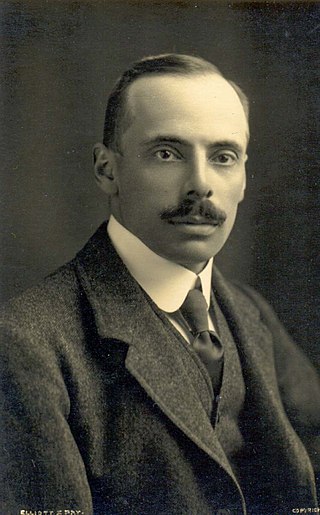
Daniel Jones was a British phonetician who studied under Paul Passy, professor of phonetics at the École des Hautes Études at the Sorbonne. He was head of the department of phonetics at University College London.
Received Pronunciation (RP) is the accent traditionally regarded as the standard and most prestigious form of spoken British English. For over a century, there has been argument over such questions as the definition of RP, whether it is geographically neutral, how many speakers there are, whether sub-varieties exist, how appropriate a choice it is as a standard, and how the accent has changed over time. The name itself is controversial. RP is an accent, so the study of RP is concerned only with matters of pronunciation, while other areas relevant to the study of language standards, such as vocabulary, grammar, and style, are not considered.
Estuary English is an English accent, continuum of accents, or continuum of accent features associated with the area along the River Thames and its estuary, including London, since the late 20th century. Phonetician John C. Wells proposed a definition of Estuary English as "Standard English spoken with the accent of the southeast of England". He views Estuary English as an emerging standard accent of England, while also acknowledging that it is a social construct rather than a technically well-defined linguistic phenomenon. He describes it as "intermediate" between the 20th-century higher-class non-regional standard accent, Received Pronunciation (RP), and the 20th-century lower-class local London accent, Cockney. There is much debate among linguists as to where Cockney and RP end and where Estuary English begins, or whether Estuary English is even a single cohesive accent.

The velar ejective is a type of consonantal sound, used in some spoken languages. The symbol in the International Phonetic Alphabet that represents this sound is ⟨kʼ⟩.

The near-open front unrounded vowel, or near-low front unrounded vowel, is a type of vowel sound. The symbol in the International Phonetic Alphabet that represents this sound is ⟨æ⟩, a lowercase of the ⟨Æ⟩ ligature. Both the symbol and the sound are commonly referred to as "ash".

John Christopher Wells is a British phonetician and Esperantist. Wells is a professor emeritus at University College London, where until his retirement in 2006 he held the departmental chair in phonetics. He is known for his work on the Esperanto language and his invention of the standard lexical sets and the X-SAMPA phonetic script system.

Charles Randolph Quirk, Baron Quirk, CBE, FBA was a British linguist and life peer. He was the Quain Professor of English language and literature at University College London from 1968 to 1981. He sat as a crossbencher in the House of Lords.
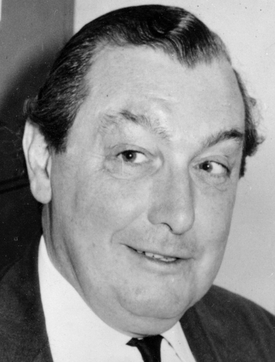
Alfred Charles "Gim" Gimson was an English phonetician.
In English phonology, t-glottalization or t-glottalling is a sound change in certain English dialects and accents, particularly in the United Kingdom, that causes the phoneme to be pronounced as the glottal stop in certain positions. It is never universal, especially in careful speech, and it most often alternates with other allophones of such as, ,, , or.
David Abercrombie was a British phonetician who established the Department of Phonetics at the University of Edinburgh. He was a student of J. R. Firth and Daniel Jones. He retired as Professor of Phonetics in 1980 and died in Edinburgh at the age of 82.

The Journal of the International Phonetic Association is a peer-reviewed academic journal that appears three times a year. It is published by Cambridge University Press on behalf of the International Phonetic Association. It was established as Dhi Fonètik Tîtcer in 1886. In 1889, it was renamed Le Maître Phonétique and French was designated as the Association's official language. It was written entirely in the IPA, with its name being written accordingly as "" and hence abbreviated "mf", until it obtained its current name and English became the official language again in 1971. It covers topics in phonetics and applied phonetics such as speech therapy and voice recognition, as well as "Illustrations of the IPA" that describe individual languages using the IPA. The journal is abstracted and indexed in the MLA Bibliography.
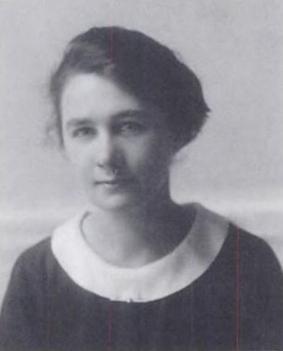
Lilias Eveline Armstrong was an English phonetician. She worked at University College London, where she attained the rank of reader. Armstrong is most known for her work on English intonation as well as the phonetics and tone of Somali and Kikuyu. Her book on English intonation, written with Ida C. Ward, was in print for 50 years. Armstrong also provided some of the first detailed descriptions of tone in Somali and Kikuyu.

The UCL Division of Psychology and Language Sciences is a Division within the Faculty of Brain Sciences of University College London (UCL) and is located in London, United Kingdom. The Division offers teaching and training and undertakes research in psychology and communication and allied clinical and basic science. It is the largest university psychology department in England.
The English Pronouncing Dictionary (EPD) was created by the British phonetician Daniel Jones and was first published in 1917. It originally comprised over 50,000 headwords listed in their spelling form, each of which was given one or more pronunciations transcribed using a set of phonemic symbols based on a standard accent. The dictionary is now in its 18th edition. John C. Wells has written of it "EPD has set the standard against which other dictionaries must inevitably be judged".
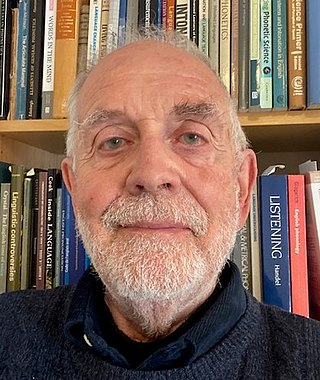
Peter John Roach is a British retired phonetician. He taught at the Universities of Leeds and Reading, and is best known for his work on the pronunciation of British English.
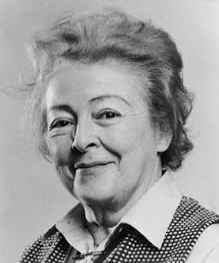
Eugénie Jane Andrina Henderson was a British linguist and academic, specialising in phonetics. From 1964 to 1982, she was Professor of Phonetics at the University of London. She served as Chair of the Linguistics Association of Great Britain from 1977 to 1980, and President of the Philological Society from 1984 to 1988.
Joseph Desmond O'Connor was a British linguist and Professor of Phonetics at University College London. A festschrift in his honor edited by Jack Windsor Lewis, was published by Routledge in 1995.
Dennis Butler Fry was a British linguist and Professor of Experimental Phonetics at University College London. Through experiments he conducted in the 1950s and 1960s, Fry demonstrated that lexical stress correlated with loudness, pitch, and duration of the affected vowel.
Simon Charles Boyanus was a Russian phonetician who worked in England.
Beatrice Lilian Honikman was a phonetician of South African origin who taught at SOAS University of London and the University of Leeds. Her special field was the phonetics of African languages.










